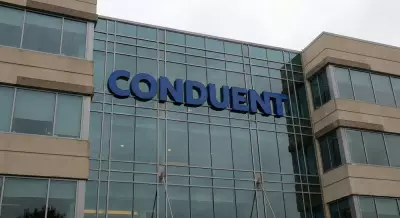What You Need to Know about the Mainstreet Bank Data Breach
Table of Contents
- Published: Jun 09, 2025
- Last Updated: Jun 09, 2025
MainStreet is a community-oriented bank in Fairfax, Virginia. Established in 2004, it is under the MainStreet Bancshares Incorporated, a small-cap financial holding organization. The financial institution follows a “branch-lite” model with six physical locations, though it offers significant banking services like mobile and online banking.
There is also a ‘Put Our Bank in Your Office’ program that embeds the banking services into the platforms of non-financial institutions. Programs like these have illustrated the bank's capability for innovation. It was also known as the first Virginia-based bank to offer Certificate of Deposit Account Registry services. This program allows users and businesses to access millions of dollars in FDIC insurance protection for deposits.
MainStreet Bank’s philosophy centers on engagement and personalized services with employees who operate and work within the District of Columbia, Maryland, and Virginia regions. Over time, the bank has balanced innovative, cutting-edge technology with the human touch, thereby reinforcing a reputation as a consumer-first facility.
According to the company, an estimated 4.65% of its customer base was breached during the data breach. It was then determined that the attack did not affect the information technology systems and networks. In a statement to the SEC, MainStreet added that no unauthorized transactions were implemented. No monies were transferred to third parties, and consumers could continue with their day-to-day transactions.
When Was the MainStreet Bank Data Breach?
On April 28, the company discovered that personally identifiable information was exposed at a third-party vendor processing payment card transactions. Based on initial investigations, the breach happened over two years, from April 2023 to the same month in 2025. During this time, sensitive customer payment details like cardholder names, numbers, and expiration dates might have been exposed.
MainStreet also issued a notification letter to the affected parties, and a copy was submitted to the Massachusetts Office of Consumer Affairs and Business Regulation. In the notification, the company noted that the breach involved a merchant’s payment card environment. However, MainStreet reiterated that there was no evidence that personal information, including MainStreet Bank account numbers and Social Security numbers, was compromised during the attack.
How to Check If Your Data Was Breached
If you are a MainStreet bank customer concerned about the exposure of financial details, the institution has taken steps to notify the affected people directly. In its SEC filing, MainStreet issued notification letters to those impacted by the breach by May 26, 2025. They also detailed the extent of the breach, including cardholder names, numbers, and expiration dates. To confirm if your details may have been exposed, perform the following:
- Contact MainStreet directly: Call their customer service line at 1-800-414-1103 to verify the account's status and initiate a card replacement request if necessary.
- Review all notifications: Check email or physical mail for breach notification letters from MainStreet Bank. It will detail the information compromised in the breach.
- Check Credit Reports: Even if your social security numbers are not compromised, request free credit reports to identify identity theft.
- Monitor all account activity: Log into the online or mobile banking portal and assess the transactions that have taken place. This is to search for unauthorized actions and enable alerts for unusual activity.
What to Do If Your Data Was Breached
If you were affected by the MainStreet Bank data breach, please take immediate steps to secure your details. Monitor your payment card statements for unauthorized actions because the breach could have exposed cardholder names, expiration dates, and numbers. MainStreet also advised affected individuals to request replacement cards by visiting their nearest branch or calling customer service.
Similarly, personnel should enable real-time transaction alerts through the institution’s online platforms to detect any suspicious activity. Social security numbers and other account details might not have been revealed, but it would be advisable to check credit reports for any sign of unauthorized access. If you have been issued a breach notification, please follow all instructions carefully.
Are There Any Lawsuits Because of the Data Breach?
MainStreet Bank has not faced any civil claims concerning the recent data breach. However, legal action may be taken because the incident directly affected 4.65% of the customer base and exposed sensitive financial information. Similarly, affected customers have pursued compensation due to identity theft risks and apparent fraud-related loss. MainStreet Bank has not revealed any compensation or credit-monitoring plans for those impacted by the breach. Customers should monitor official bank communication or legal filing data with the SEC for relevant updates.
Can My MainStreet Bank Information Be Used for Identity Theft?
Though the MainStreet Bank breach did reveal payment card information, the institution confirmed that social security details, bank account numbers, or other sensitive information were not exposed. This ultimately reduces the potential for identity theft, considering criminals would not have access to the identifiers needed to open a new account or source loans.
The stolen card information could still be used for phishing scams or social engineering attacks. In these, scammers impersonate the bank to trick the consumer into giving more information to make identity theft possible. MainStreet advises the affected customers to monitor their accounts for unauthorized actions. They are also advised to request replacement cards and remain cautious of any suspicious communications, including calls or emails requesting card detail verification.
What Can You Do to Protect Yourself Online?
In light of the MainStreet Bank data breach and emerging cyber threats, there are a few essential steps you could take to protect your financial information:
- Beware of social engineering or phishing scams: Do not click on suspicious links or share personal information, including logins and passwords, during unsolicited customer care calls. Contact the institution to verify all requests for data.
- Enable multi-factor authentication: activate multi-factor authentication for email and banking. These will add an extra layer of security aside from passwords.
- Secure your devices: Install antivirus software and update the systems if needed. Avoid using public Wi-Fi when accessing the mobile platform outside.
- Use strong passwords: Avoid reusing passwords across different sites. You can utilize a password manager to store these credentials securely.














